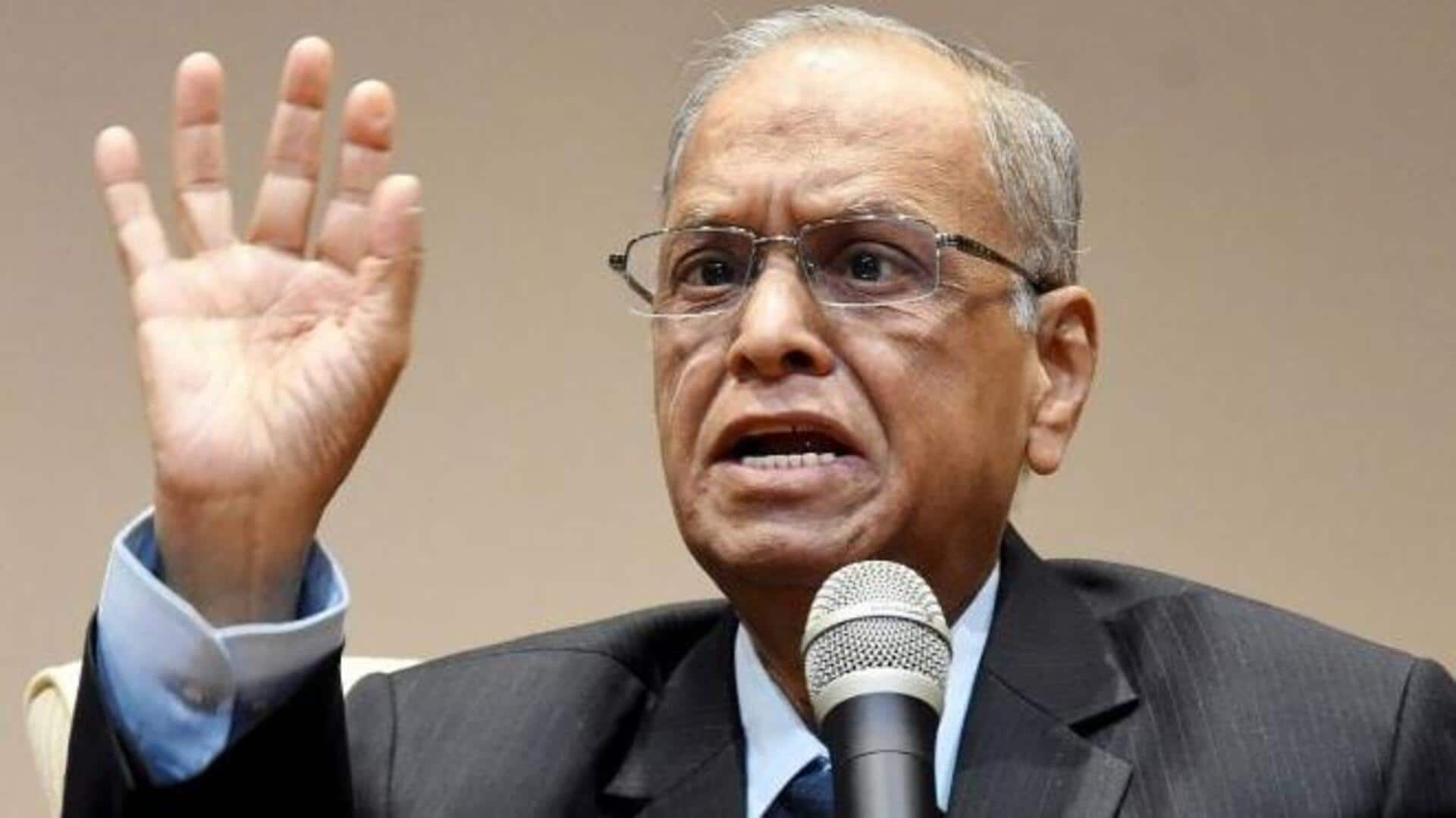
Indian youth should work 70 hours a week: Narayana Murthy
What's the story
Infosys co-founder Narayana Murthy has said Indian youth should work 70 hours a week if the country wants to compete with rapidly advancing economies, in a recent episode of 3one4 Capital's podcast 'The Record.' Joined by former Infosys CFO Mohandas Pai, Murthy discussed topics such as nation-building, technology, and Infosys. He stressed the importance of discipline, hard work, and determination among India's young population to advance the nation's progress, per Moneycontrol.
Significance
India's work culture has to change, says Murthy
The billionaire founder of Infosys underscored the crucial role India's youth play in driving the country's progress, as they make up a significant portion of the population. Murthy stated, "We need to be disciplined and improve our work productivity... And our culture has to change to that of highly determined, extremely disciplined and extremely hard-working people." He added that this transformation must originate from the youth as "they are the ones who can build our country."
Details
Comparing India's work productivity to other countries
Murthy pointed out that India's work productivity ranks among the lowest globally and must improve to compete with nations like China. He referenced instances from post-World War 2 where in Germany and Japan, citizens worked additional hours for several years to reconstruct their countries. Murthy also identified issues like government corruption and bureaucratic delays that impede India's growth. He encouraged young people to take charge of their nation and work extended hours.
Insights
Technology as a key factor for India's growth
Murthy also touched on the influence of technology on India's growth. He used examples like Amazon and BYJU'S to demonstrate how technology has enhanced the country's performance. He emphasized that technology serves as a 'leveler,' benefiting both wealthy and poor individuals, educated and uneducated people, and urban and rural communities. Further, Murthy commended direct benefit transfer stating, "Even direct benefit transfer is an excellent example... corruption has been eliminated...this is an extraordinary benefit that has accrued to our Indian people."